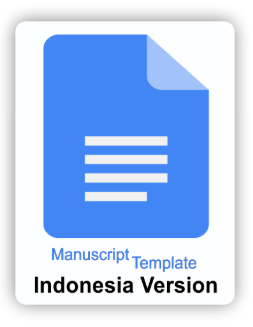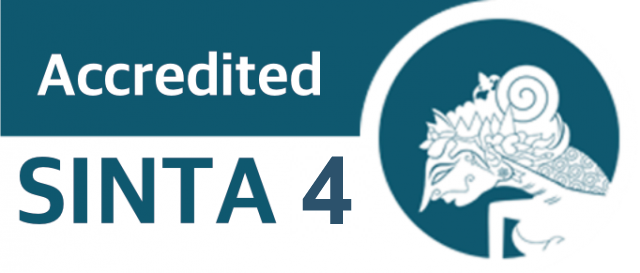Developing Literacy and Numeracy-Based Mathematical Reasoning Question Items for High School Students
DOI:
https://doi.org/10.21831/ep.v4i2.66119Keywords:
literacy, mathematical reasoning, numeracy, questionAbstract
This study aims to describe the process and the result of developing literacy and numeracy-based mathematical reasoning questions for high school students in Mojokerto that are valid, practical, and effective. The subjects of this study are 12th-grade students at the public senior high school of Gondang. The research instruments are observation sheets, interview guidelines, response questionnaires, and mathematical reasoning ability tests. At the same time, the data analysis in this study is qualitative and quantitative. The result of this research is (1) In The preliminary stage, students' mathematical reasoning abilities still needed to improve with evidence of difficulties in identifying and relating the information provided to conclusions. The researchers and teachers determine the research subjects and research time. In the formative evaluation stage, for self-evaluation, the researcher analyzed the material and curriculum. The third stage is prototyping, consisting of expert review, one-to-one, small group, and field tests. In the expert review, prototype II was produced, which was very valid, with an overall average of 4.24. Three students were tested in the one-to-one, and three prototypes were built. A trial was conducted in the small group, and a prototype IV was produced. The field test, testing, and production of mathematical modules met the valid, practical, and effective criteria. (2) The study's findings include numeracy and literacy-based mathematical reasoning problems that satisfy the validity criteria with proper categories and the practical requirements with extremely positive standards, in addition to achieving the efficacy criterion of the questions through students' mathematical reasoning.
References
Ario, M. (2016). Analisis kemampuan penalaran matematis siswa smk setelah mengikuti pembelajaran berbasis masalah. Jurnal Ilmiah Edu Research, 5(2), 125–134. https://e-journal.upp.ac.id/index.php/EDU/article/view/1208
Dewayani, S., Retnaningdyah, P., Antoro, B., Susanto, D., Ikhwanudin, T., Fianto, F., Muldian, W., Syukur, Y., & Setiakarnawijaya, Y. (2021). Panduan penguatan literasi dan numerasi di sekolah dasar. Direktorat Jenderal Pendidikan Anak Usia Dini, Pendidikan Dasar, dan Pendidikan Menengah Kementerian Pendidikan dan Kebudayaan.
Feriyanto. (2022). Strategi penguatan literasi numerasi matematika bagi peserta didik pada kurikulum merdeka belajar. Gammath: Jurnal Ilmiah Program Studi Pendidikan Matematika Universitas Muhammadiyah Jember, 7(2), 86–94. https://doi.org/10.32528/gammath.v7i2.8439
Feriyanto, & Putri. (2020). Developing mathematics module based on literacy and higher order thinking skills (HOTS) questions to train critical thinking ability of high school students in Mojokerto. The 1st Progress in Science and Technology Research Symposium (PSTRS), 1594(1), 1–7. https://doi.org/10.1088/1742-6596/1594/1/012014
Fikriya, A., Waluya, S. B., & Sunarmi. (2018). The analysis of adaptive reasoning ability reviewed from students' confidence in ethnomathematic-based treffinger learning model. Unnes Journal of Mathematics Education, 7(2), 100–107. https://doi.org/10.15294/ujme.v7i2.24941
Hilaliyah, N., Sudiana, R., & Pamungkas, A. S. (2019). Pengembangan modul realistic mathematics education bernilai budaya banten untuk mengembangkan kemampuan literasi matematis siswa. Jurnal Didaktik Matematika, 6(2), 121–135. https://doi.org/10.24815/jdm.v6i2.13359
Kemdikbud. (2018). Permendikbud RI Nomor 37 tahun 2018 tentang perubahan atas peraturan menteri pendidikan dan kebudayaan nomor 24 tahun 2016 tentang kompetensi inti dan kompetensi dasar pelajaran pada kurikulum 2013 pada pendidikan dasar dan pendidikan menengah. In Kemdikbud (Vol. 1, pp. 1–527). Kementrian Pendidikan, Kebudayaan, Riset, dan Teknologi. https://jdih.kemdikbud.go.id/sjdih/siperpu/dokumen/salinan/Permendikbud Nomor 37 Tahun 2018.pdf
Khabibah, S. (2007). Pengembangan perangkat pembelajaran matematika dengan soal terbuka untuk meningkatkan kreativitas siswa SMP. In Universitas Negeri Surabaya (Vol. 1, Issue 1). Universitas Negeri Surabaya.
Lestari, A. S., Aripin, U., & Hendriana, H. (2018). Identifikasi kesalahan siswa SMP dalam menyelesaikan soal kemampuan penalaran matematik pada materi bangun ruang sisi datar dengan analisis kesalahan newman. JPMI (Jurnal Pembelajaran Matematika Inovatif), 1(4), 493–504. https://doi.org/10.22460/jpmi.v1i4.p493-504
McKenney, S., & Reeves, T. C. (2013). Educational design research. In Handbook of Research on Educational Communications and Technology (pp. 1–206). Springer. https://doi.org/10.1007/978-1-4614-3185-5_11
OECD. (2019). PISA 2018 assessment and analytical framework. In OECD Publishing. OECD Publishing. https://doi.org/10.1787/b25efab8-en
Riduwan. (2019). Belajar mudah penelitian untuk guru, karyawan, dan peneliti pemula. Alfabeta.
Rizta, A., Zulkardi, & Hartono, Y. (2013). Pengembangan soal penalaran model timss matematika SMP. Jurnal Penelitian dan Evaluasi Pendidikan, 17(2), 230–240. https://doi.org/10.21831/pep.v17i2.1697
Suriyani, & Wahyuni, M. S. (2021). Pengembangan instrumen penalaran matematis untuk menstimulasi kemampuan numerasi siswa dengan konteks "rumahku." Jurnal Education and Development, 9(1), 26–29. https://doi.org/10.37081/ed.v9i1.2286
Susetyawati, M. M. E., & Kintoko. (2022). Pengembangan butir soal kemampuan literasi numerasi matematika materi bangun ruang kelas viii SMP di Yogyakarta. Indonesian Journal of Education and Humanity, 2(2), 52–61. https://ijoehm.rcipublisher.org/index.php/ijoehm/article/view/54
Tessmer, M. (1993). Planning and conducting formative evaluations. Routledge. https://doi.org/10.4324/9780203061978
Vebrian, R., Putra, Y. Y., Saraswati, S., & Wijaya, T. T. (2021). Kemampuan penalaran matematis siswa dalam menyelesaikan soal literasi matematika kontekstual. AKSIOMA: Jurnal Program Studi Pendidikan Matematika, 10(4), 2602–2614. https://doi.org/10.24127/ajpm.v10i4.4369
Widiantari, N. K. K., Suparta, I. N., & Sariyasa. (2022). Meningkatkan literasi numerasi dan pendidikan karakter dengan e-modul bermuatan etnomatematika di era pandemi covid-19. JIPM (Jurnal Ilmiah Pendidikan Matematika), 10(2), 331–343. https://doi.org/10.25273/jipm.v10i2.10218
Widoyoko, E. P. (2009). Evaluasi program pembelajaran. In Pustaka Pelajar (Vol. 238). Pustaka Belajar.
Winata, A., Widiyanti, I. S. R., & Cacik, S. (2021). Analisis kemampuan numerasi dalam pengembangan soal asesmen kemampuan minimal pada siswa kelas xi SMA untuk menyelesaikan permasalahan science. Jurnal Educatio FKIP UNMA, 7(2), 498–508. https://doi.org/10.31949/educatio.v7i2.1090
Downloads
Published
How to Cite
Issue
Section
License
Epistema allows readers to read, download, copy, distribute, print, search, or link to its articles' full texts and allows readers to use them for any other lawful purpose. The journal allows the author(s) to hold the copyright without restrictions. Finally, the journal allows the author(s) to retain publishing rights without restrictions
- Authors are allowed to archive their submitted articles in an open access repository
- Authors are allowed to archive the final published article in an open access repository with an acknowledgment of its initial publication in this journal

This work is licensed under a Creative Commons Attribution-ShareAlike 4.0 Generic License.











